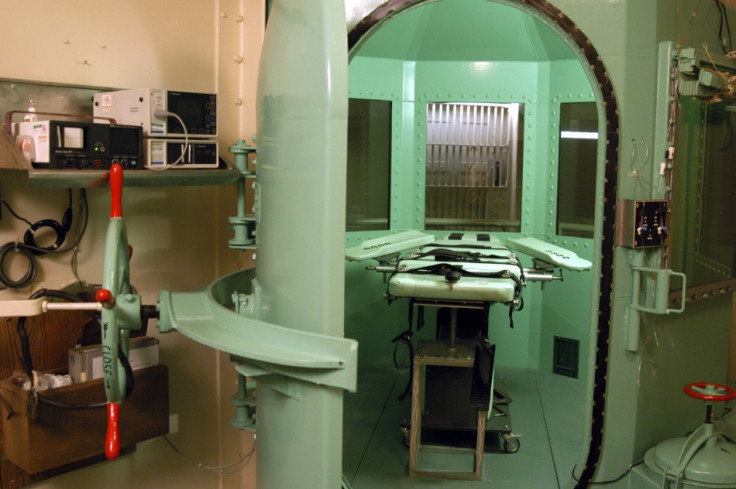Families of California crime victims demand faster executions
Executions temporarily halted in 2006, leaving Death Row prisoners in limbo

Crime victims groups in California are demanding that the execution of death row inmates be accelerated after an eight-year moratorium on lethal injections.
California halted executions in 2006 following concerns about the cocktail of drugs used.
Since the death penalty was adopted in California, 900 convicted criminals have been sentenced to death, but only 13 have been executed.
American football star Kermit Alexander, whose mother, sister and two nephews were murdered in a case of mistaken identity in 1984, is leading the campaign to have executions resumed.
The man responsible for the killings has been on death row for almost 30 years.
Alexander told Sky News: "They won't allow me to do it, so if society has it on the books they have to get it done. Don't make us suffer the anguish of waiting to see if it is going happen.
"I'm saddened because we can't get on with our lives because this is in the back of our minds. Our family has been badly mauled."
Death Row is cruel and unusual punishment
Earlier this year, Judge Cormac Carney ruled that keeping prisoners waiting on death row, in some cases for decades, constituted a cruel and unusual punishment and the death sentence was thus unconstitutional.
"For most, systemic delay has made their execution so unlikely that the death sentence... has been quietly transformed into one no rational jury or legislature could ever impose: life in prison, with the remote possibility of death," wrote Judge Carney.
"As for the random few for whom execution does become a reality, they will have languished for so long on Death Row that their execution will serve no retributive or deterrent purpose."
Meanwhile, the Sacramento-based Criminal Justice Legal Foundation is suing state officials for taking too long to adopt single-drug execution procedures.
According to the California Department of Corrections and Rehabilitation (CDCR), state governor Jerry Brown directed them to develop a single-drug lethal injection protocol, buta nationwide problem with access to execution drugs is hampering efforts.
The CDCR said that: "California's lethal injection protocol was invalidated by the Court of Appeal for the First District when it affirmed the Marin County Superior Court's judgement that held the state's lethal injection protocol was invalid for substantial failure to comply with the requirements of the Administrative Procedure Act.
"CDCR is permanently enjoined from carrying out the execution of any condemned inmate by lethal injection unless and until new regulations are promulgated in compliance with the Administrative Procedure Act."
The backlog of executions is not limited to California, with only 1% of the 3,000 condemned inmates in the US put to death annually.
Experts say that lengthy legal procedures and growing concerns about the drugs used for lethal injections are behind the delay, with lawyers appealing thousands of death sentences after a series of high-profile botched executions.
© Copyright IBTimes 2025. All rights reserved.






















